Sustainable Crop Programs

Agriculture provides livelihood to more than 58% of India’s Population, contributing about 18% to our GDP, yet the sector has yet to under- go radical digital transformation. Most farmers still practice traditional methods of cultivation owing to a lack of awareness, education, low accessibility to mechanisation, and poor access to technology.
Through our sustainability programs, we want to drive change at the grassroots level by educating and training them about sustainable farming practices, improving access to technology and mechanisation, and last but not least, reducing GHG emissions, and helping farmers grow more with less.

Agriculture is the 5th Largest contributor for
GHG Emissions

Rice, wheat & sugarcane are the largest contributors to GHG emissions

With rice cultivation contributing to 1.5 % of total
GHG emissions

Methane is 2nd largest contributor to global
warming after CO2
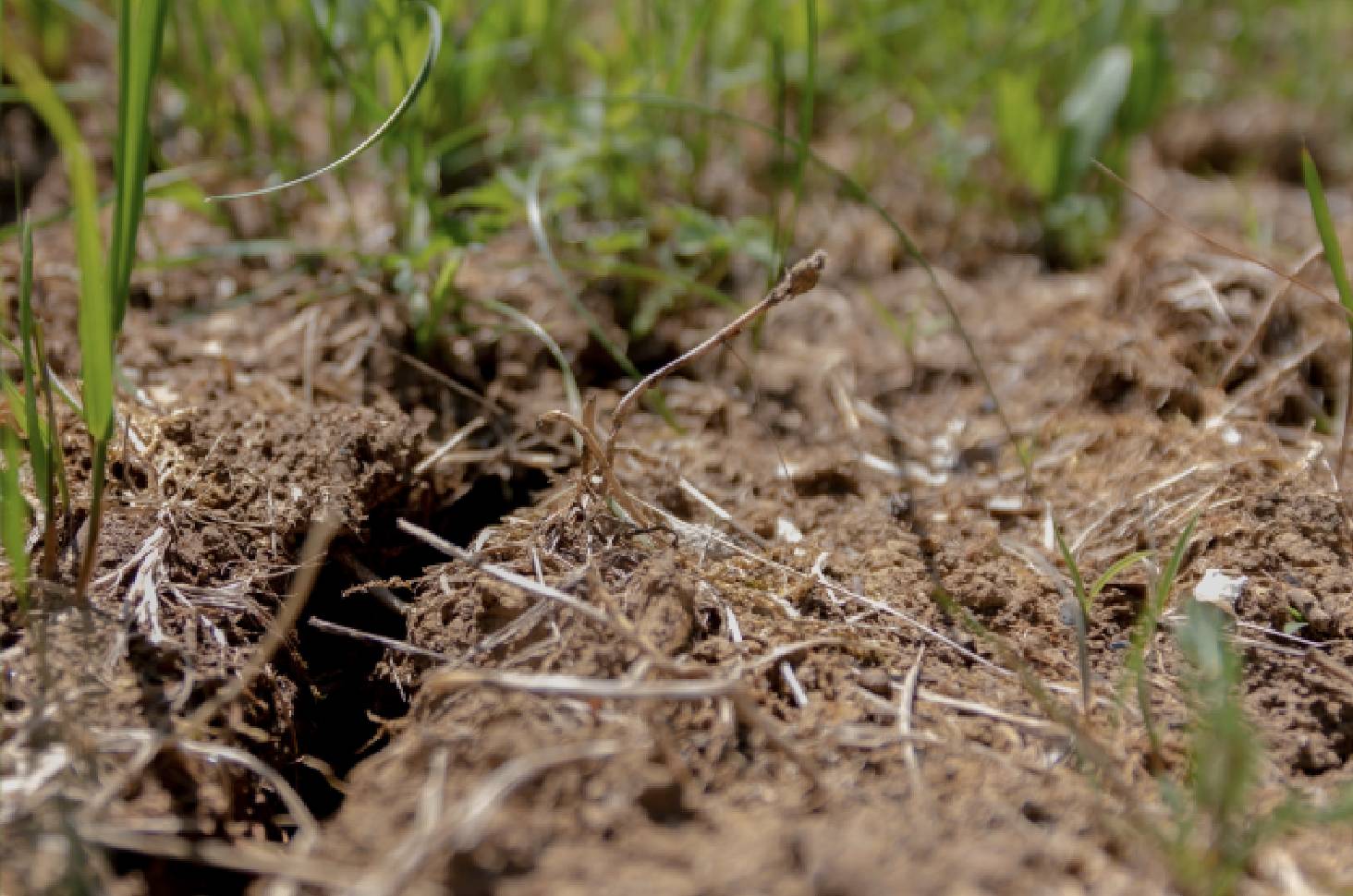
24 billion tonnes of fertile soil is lost annually to
erosion
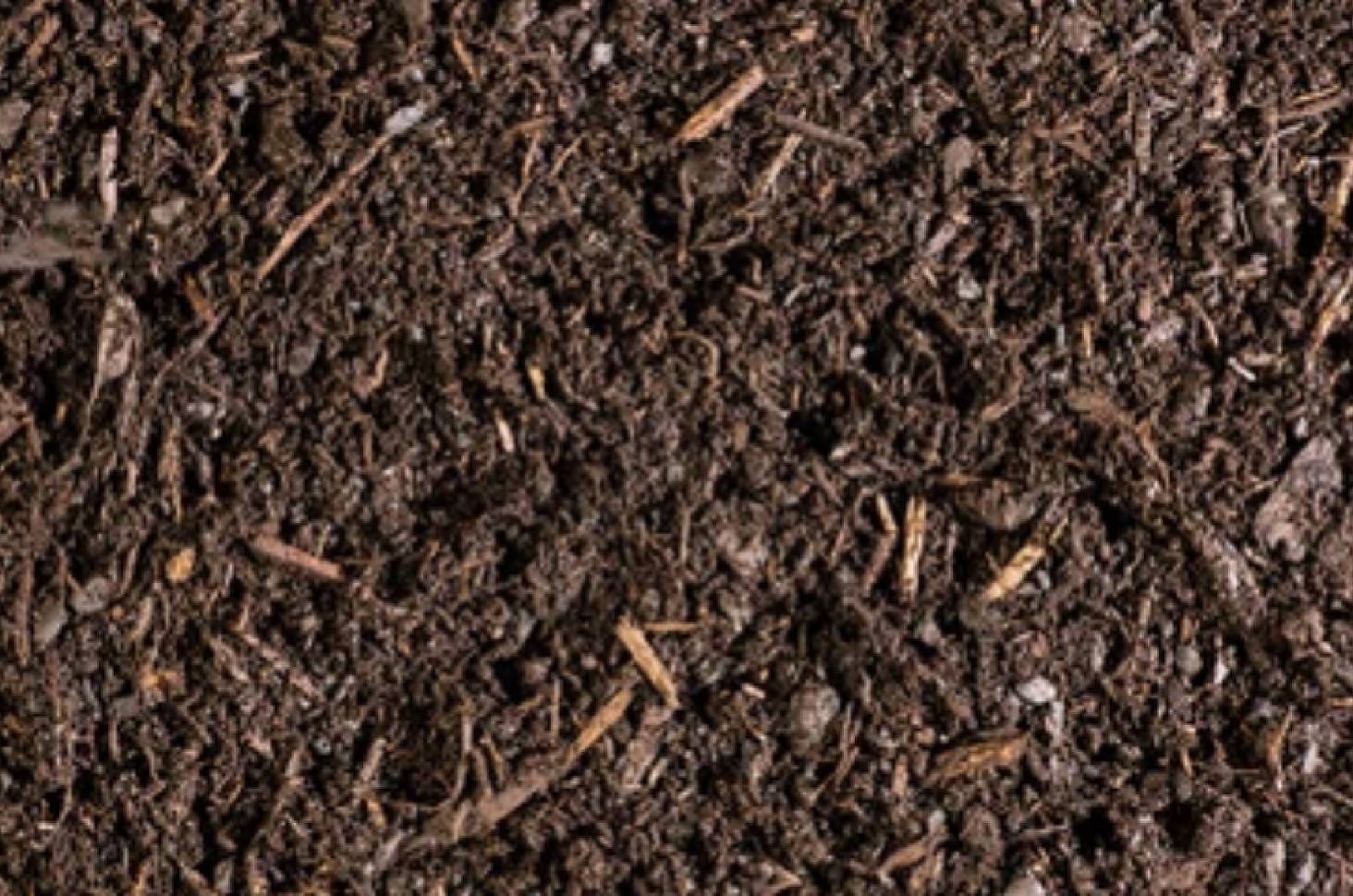
490 billion USD, the current cost of land
degradation per year
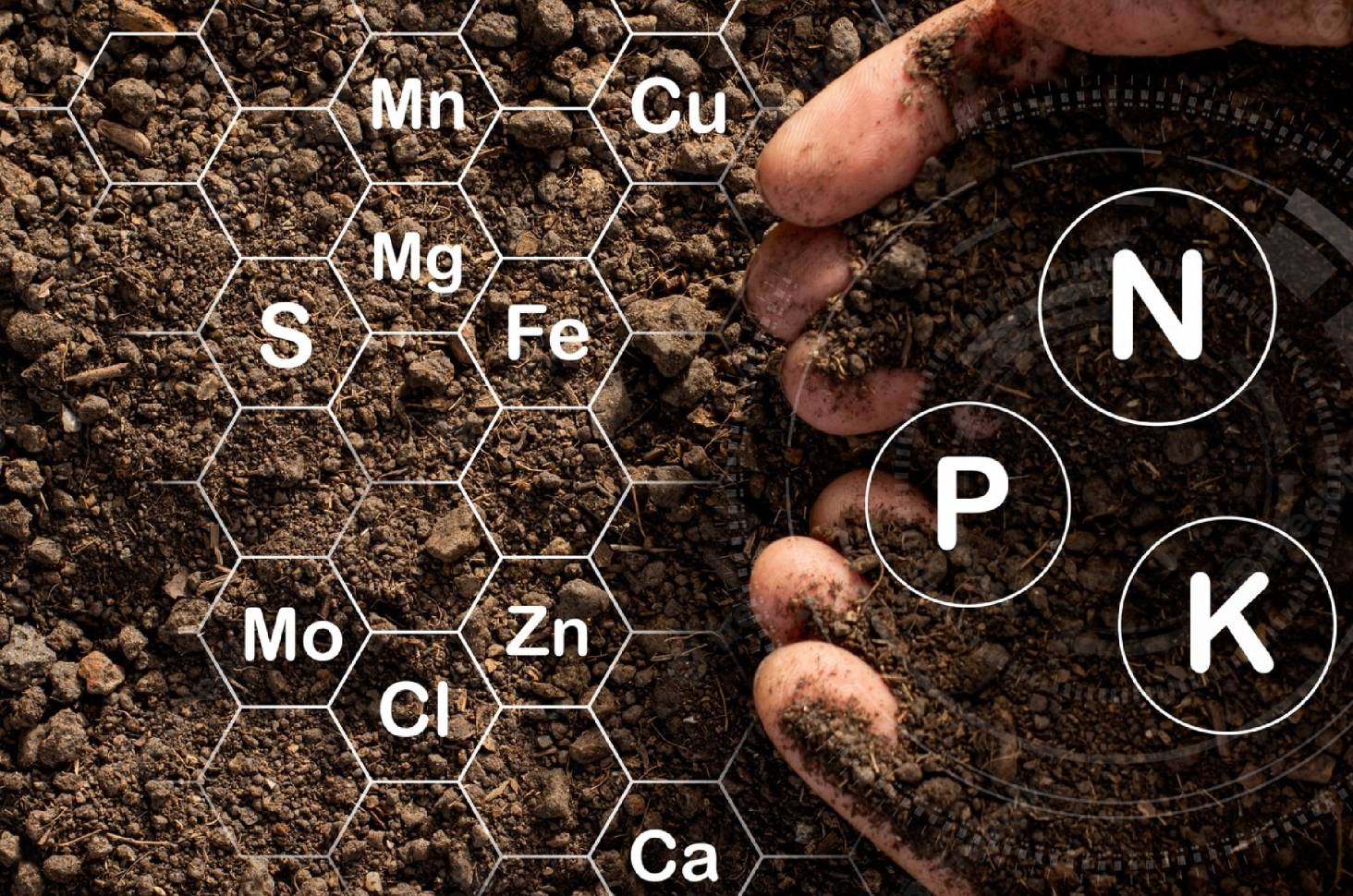
It takes approximately 500 years for a 2.5 cm layer of fertile topsoil to forms
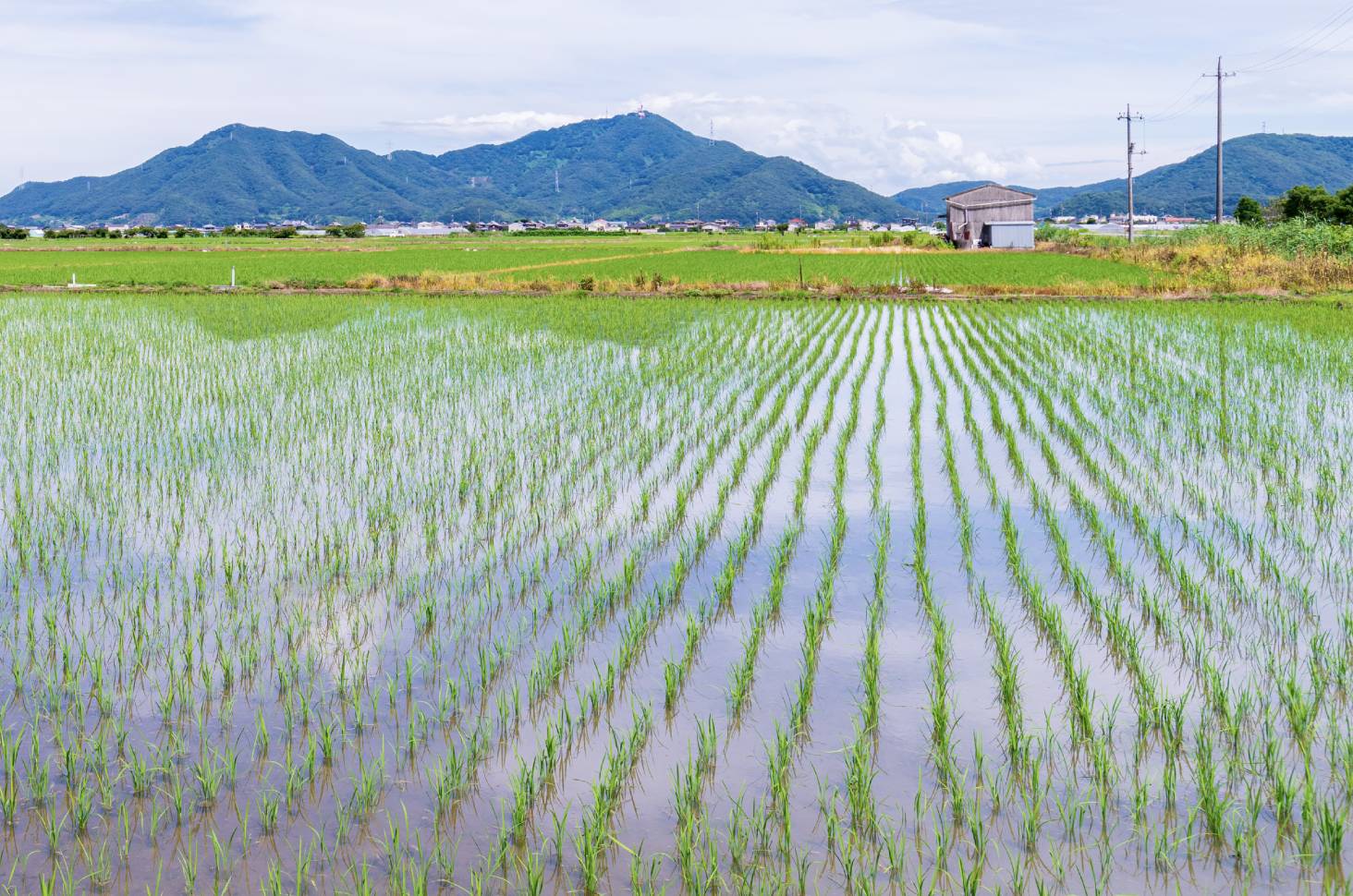
300,000 gallons of water - The amount of water
required to cover one acre to a depth of one foot
We are focused on providing knowledge, technology, inputs, and the know-how to farmers and helping them adapt to sustainable cli- mate smart farming practices for primary crops – rice, sugarcane, and wheat.
Crops like Rice, Sugarcane etc., consume about 4,000-5,000 litres of water per kg of grain produced. These crops are constantly sub- merged in water for weeks devoid of sunlight & aeration, leading to methane emissions.
We are implementing & scaling new sustainable methods of cultivation to reduce the negative impact of paddy, wheat & sugarcane cul- tivation without incurring yield losses or compromising on soil health. We are paving the way for sustainable climate smart farming practices through our sustainability programs.
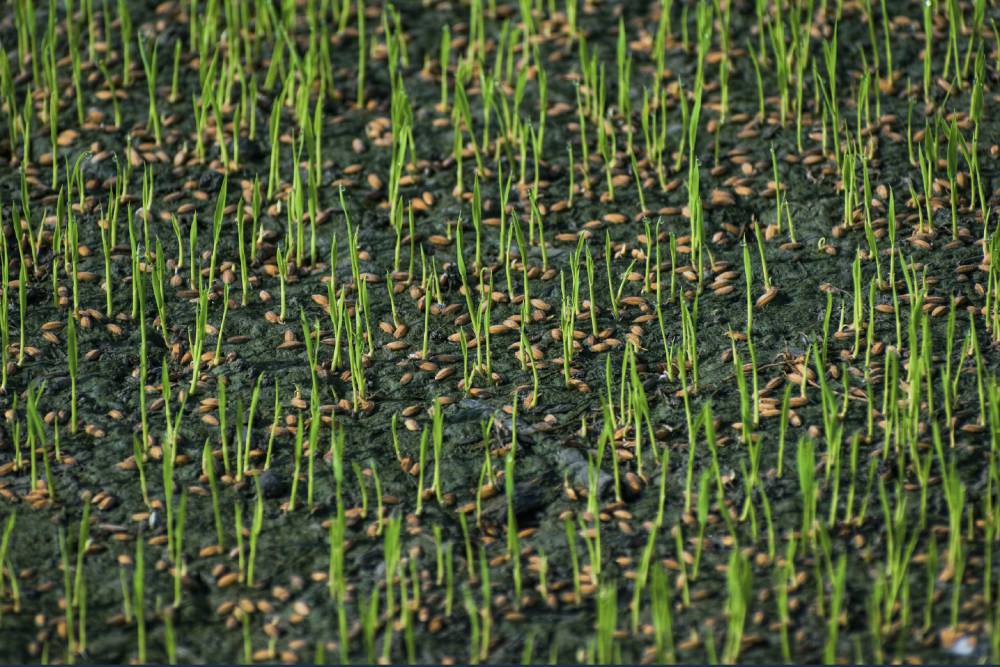
The program establishes a rice crop from seeds sown in the field rather than by transplanting seedlings from the nurs- ery. DSR reduces water usage during initial cropping, miti- gating methane emissions and lowering labour costs. DSR helped fast-track growth and improved yield quality as well.
2 States
39,751*
150,000
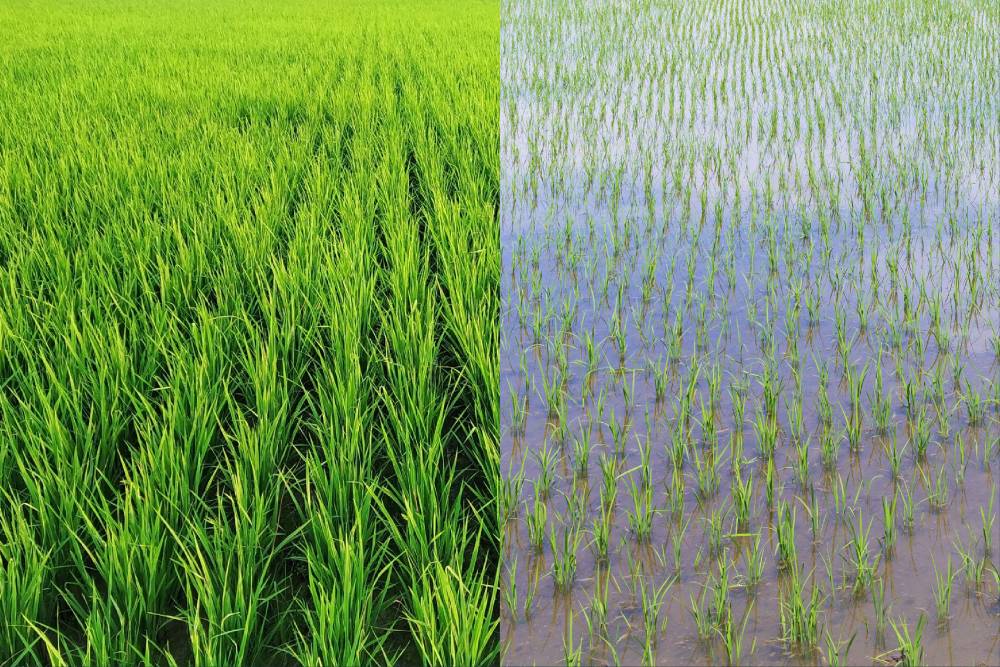
t’s a method of effective water management, weed control and emission reduction. Instead of practising continuous flooding throughout the cultivation period, the technique supports intermittent drying (for at least two operations). To ensure there was no yield loss, our field team monitored the depth of ponded water in the area using a field water tube. AWD reduces the frequency of flooding, helping improve soil quality, and provides an option of intercropping for the farmers. It helps reduce incidences of pests & diseases, thereby improving yield quality.
4 States
100,000*
450,000
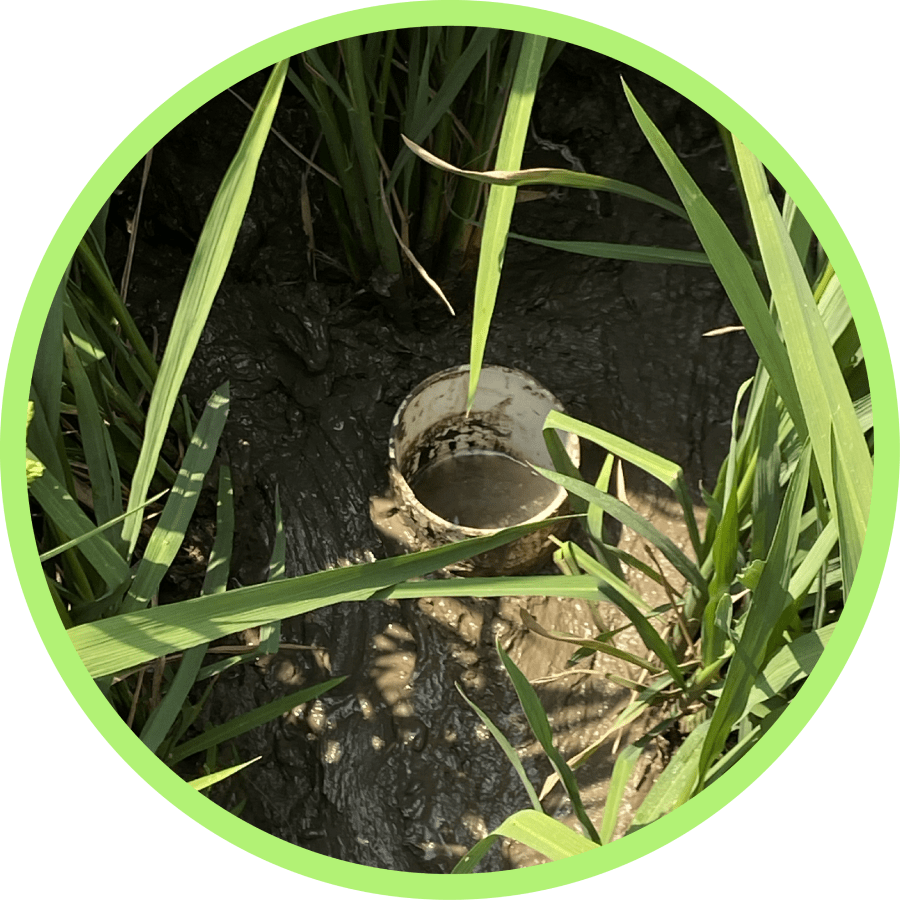

Farmers Covered Under the Program
Acres Covered Under the Program
States Covered Under the Program
ROPS Covered under the Program
States Covered Under the Program
CROPS Covered under the Program
Acres Covered Under the Program
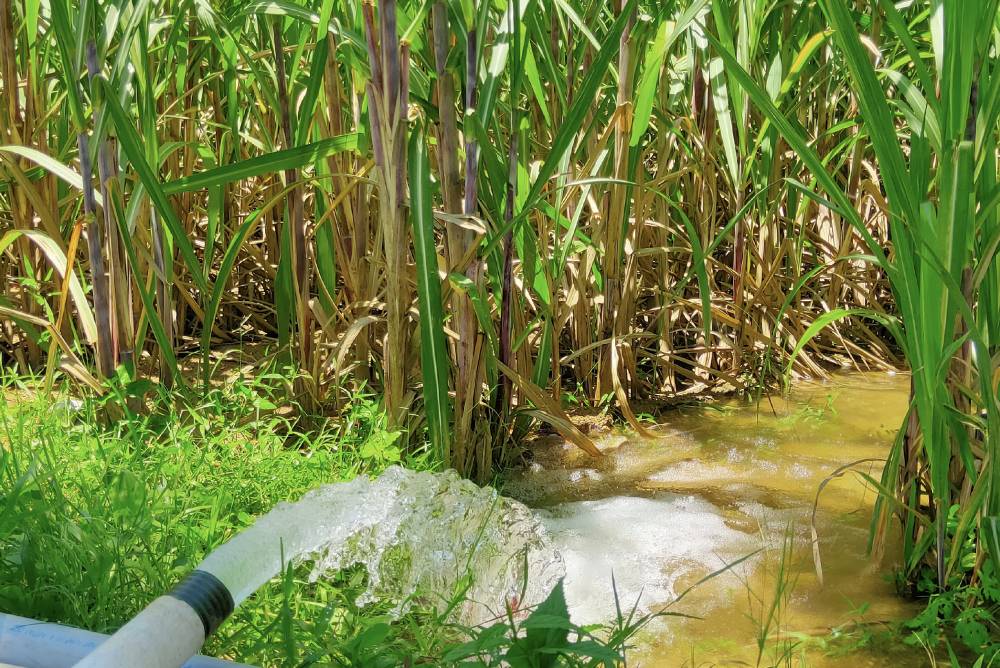
Through our Sustainable sugarcane program we are focussed on boosting the quality of produce, preventing soil erosion, improving soil health while minimizing water & input usage. In our program we work with the farmers to advocate the use of drip irrigation practices, propose the usage of mulch & bio-decomposers to minimize crop residue to improve soil fertility, and advocate use of stimulants and additives that have rich water retention properties. Similar to all our programs, we focus on training, advocating and implementing these crop specific packages of practices at a ground level to improve yield quality and deliver consistency.
Pilot | 2 States
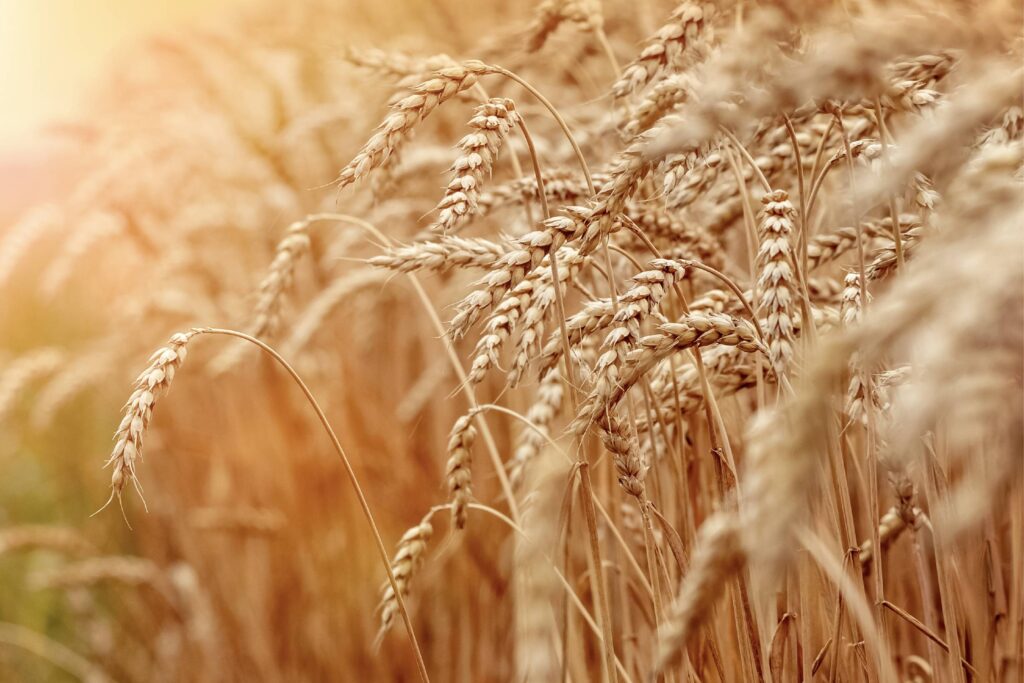
Based on our soil testing analysis, we offer sustainable solutions to the farmers to grow wheat sustainably – ensuring optimum input usage, water usage, and improved yield per acre. We offer them access to precision farming tools – Satellite Data, Mechanisation, Drones, Irrigation Solutions, Inputs, and advisory to help them harvest quality produce with lower cost of cultivation.
Pilot | 2 States
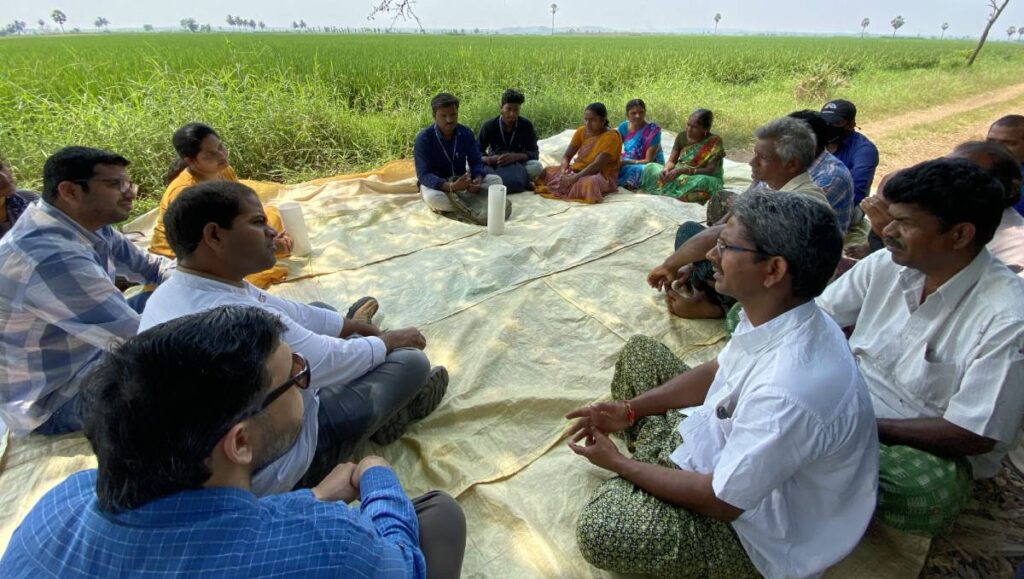
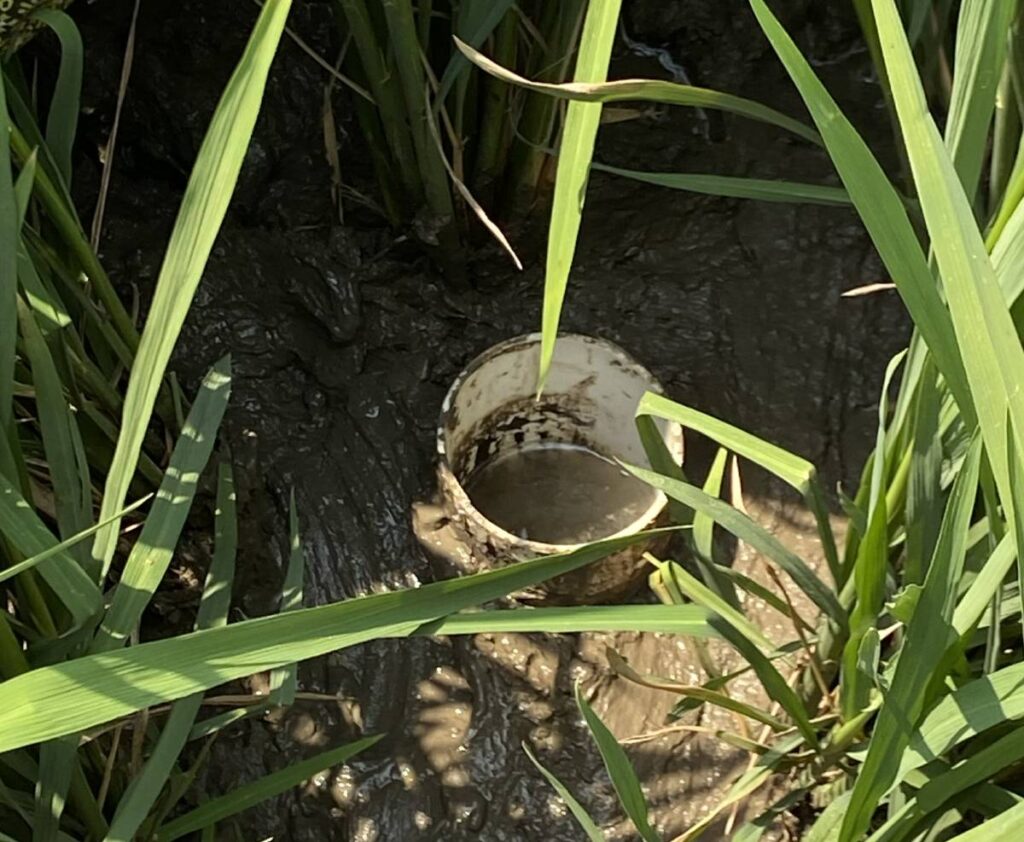
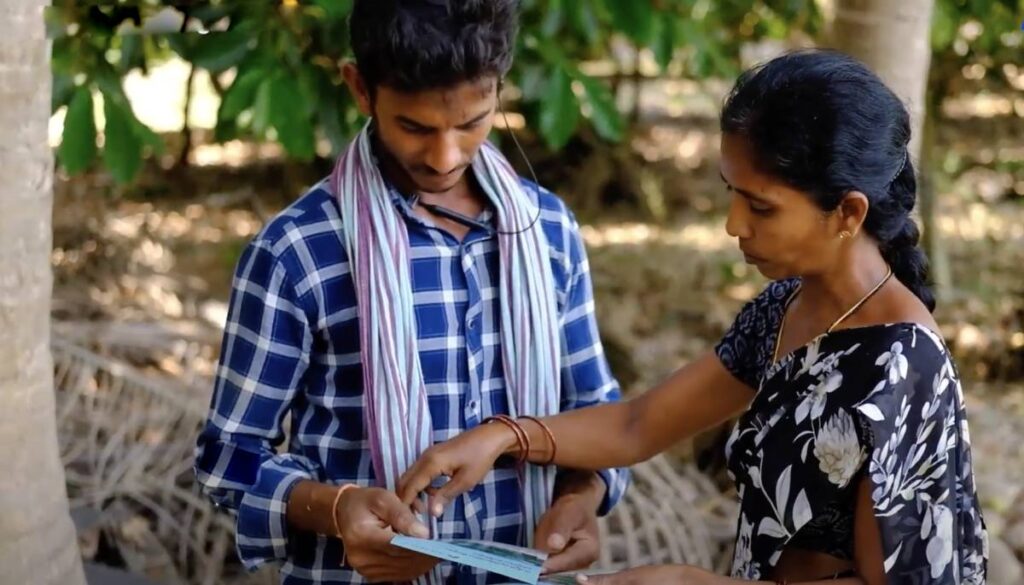
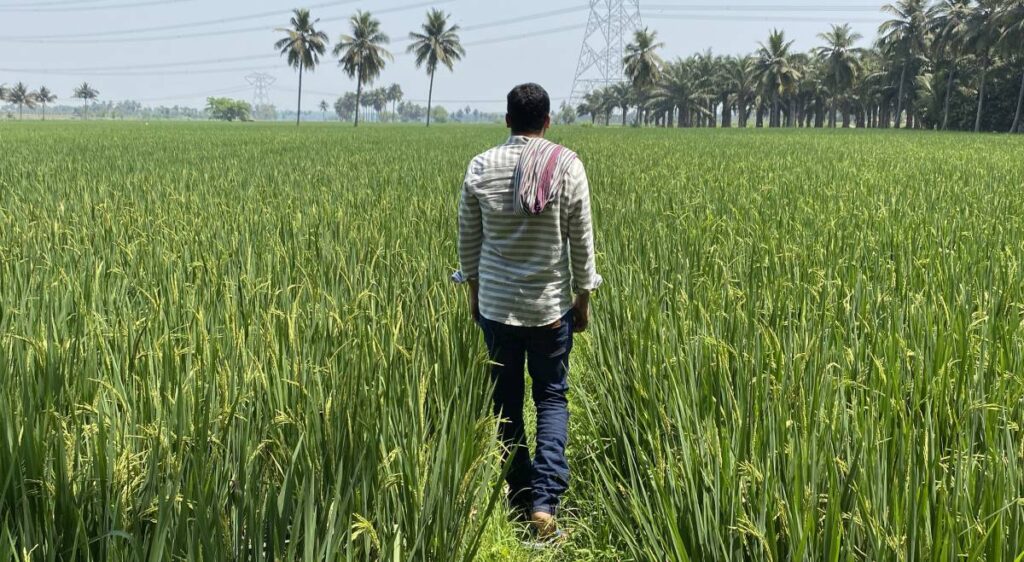
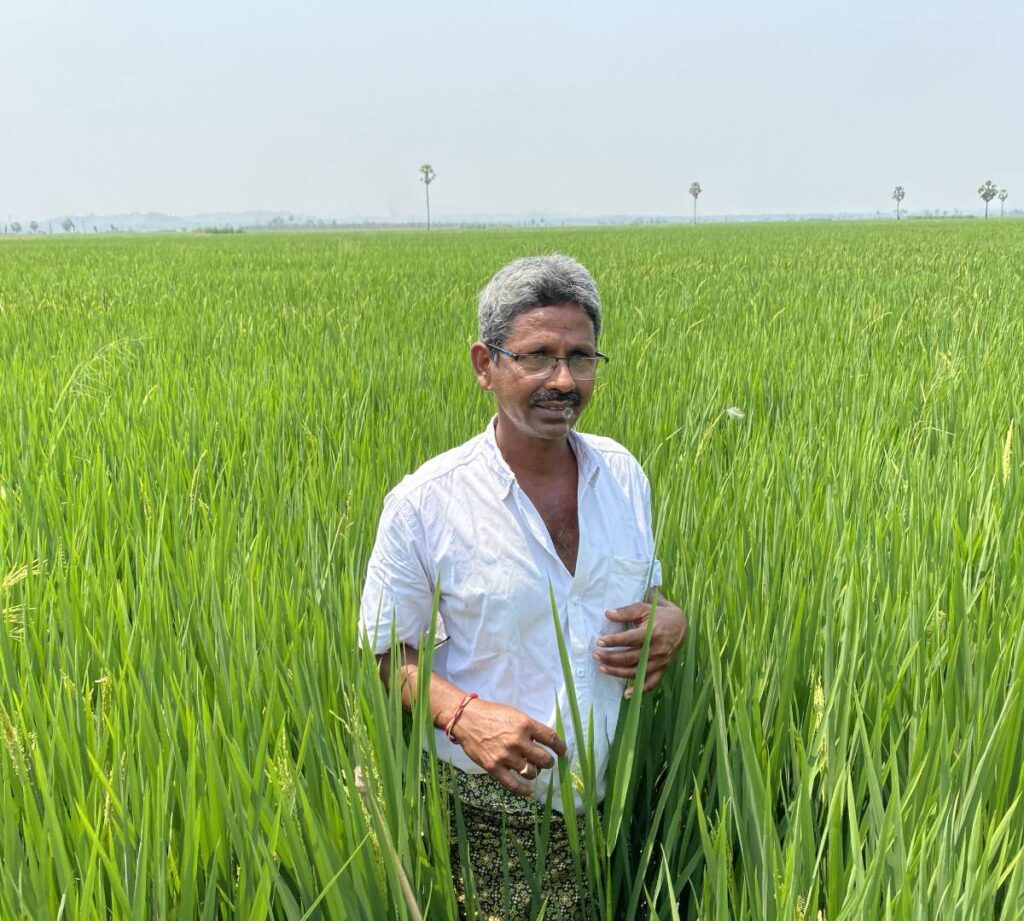
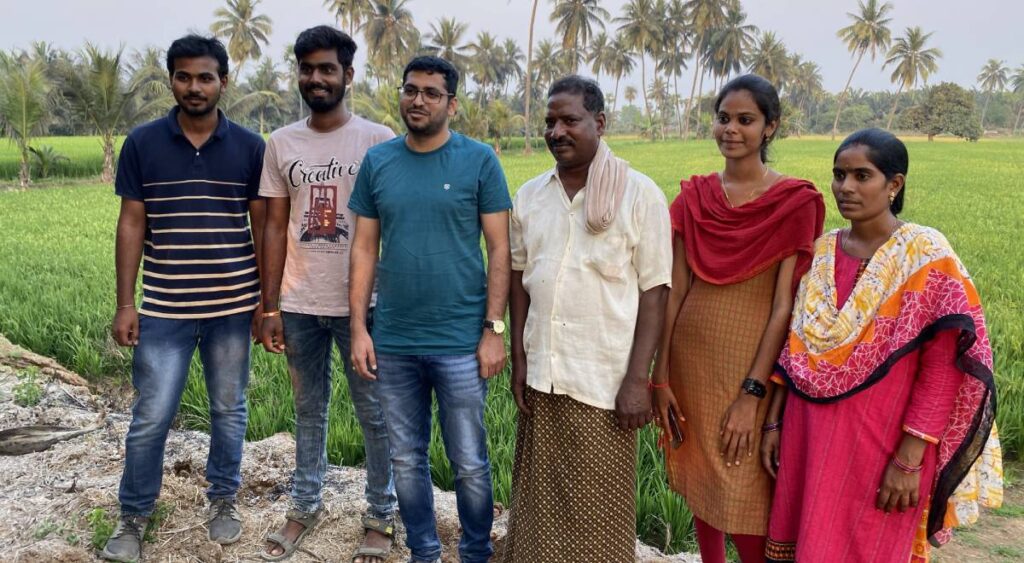

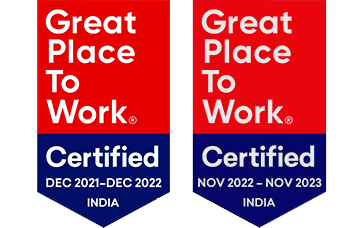
Partnership Enquiries: partners@nurture.farm
Investor Relations: upl.investors@upl-ltd.com
Media Relations: pr@nurture.farm

Welcome to Spring. Your registration for Spring has been confirmed. An email with joining details for this event will be sent to you soon. Don’t forget to check out and participate in the Design Challenge. We look forward to meeting you soon!

Come join us on March 26, 2022 to learn how design and research can play a role in transforming agriculture globally and bring human-centered experiences to the agricultural community.